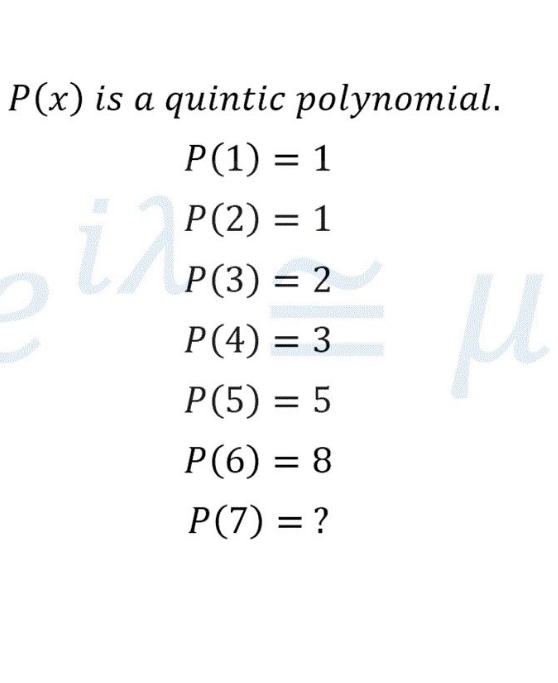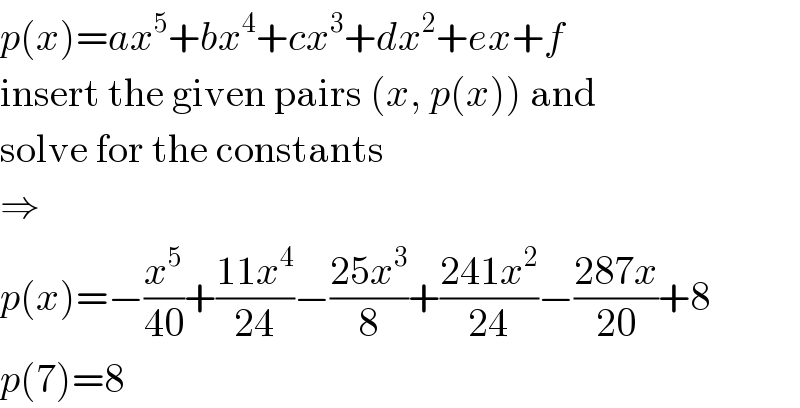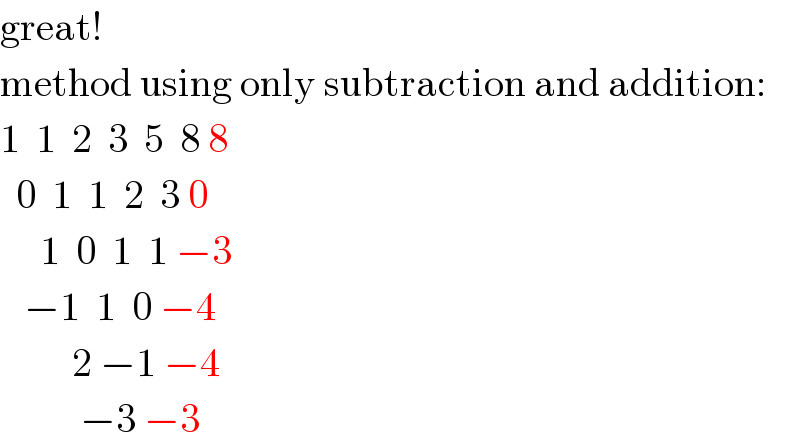
Question and Answers Forum
Question Number 97919 by Lekhraj last updated on 10/Jun/20

Commented by MJS last updated on 10/Jun/20

Commented by mr W last updated on 10/Jun/20

Answered by mr W last updated on 10/Jun/20
(x−1)+1 ⇒p(4)=[c(4)(4−3)+(1/2)](4−2)(4−1)+1=3 ⇒c(4)=−(1/6) ⇒c(x)=d(x)(x−4)−(1/6) ⇒p(x)={[d(x)(x−4)−(1/6)](x−3)+(1/2)}(x−2)(x−1)+1 p(5)={[d(5)(5−4)−(1/6)](5−3)+(1/2)}(5−2)(5−1)+1=5 ⇒d(5)=(1/(12)) ⇒d(x)=e(x)(x−5)+(1/(12)) ⇒p(x)={[{e(x)(x−5)+(1/(12))}(x−4)−(1/6)](x−3)+(1/2)}(x−2)(x−1)+1 p(6)={[{e(6)(6−5)+(1/(12))}(6−4)−(1/6)](6−3)+(1/2)}(6−2)(6−1)+1=8 ⇒e(6)=−(1/(40)) ⇒e(x)=−(1/(40))=constant, since p(x) is quintic. ⇒p(x)={{{−(1/(40))(x−5)+(1/(12))}(x−4)−(1/6)}(x−3)+(1/2)}(x−2)(x−1)+1 ⇒p(7)={{{−(1/(40))(7−5)+(1/(12))}(7−4)−(1/6)}(7−3)+(1/2)}(7−2)(7−1)+1 ={{{−(1/(20))+(1/(12))}3−(1/6)}4+(1/2)}30+1 ={−(4/(15))+(1/2)}30+1 =−8+15+1 =8](Q97959.png)
Commented by MJS last updated on 10/Jun/20

Commented by mr W last updated on 10/Jun/20

